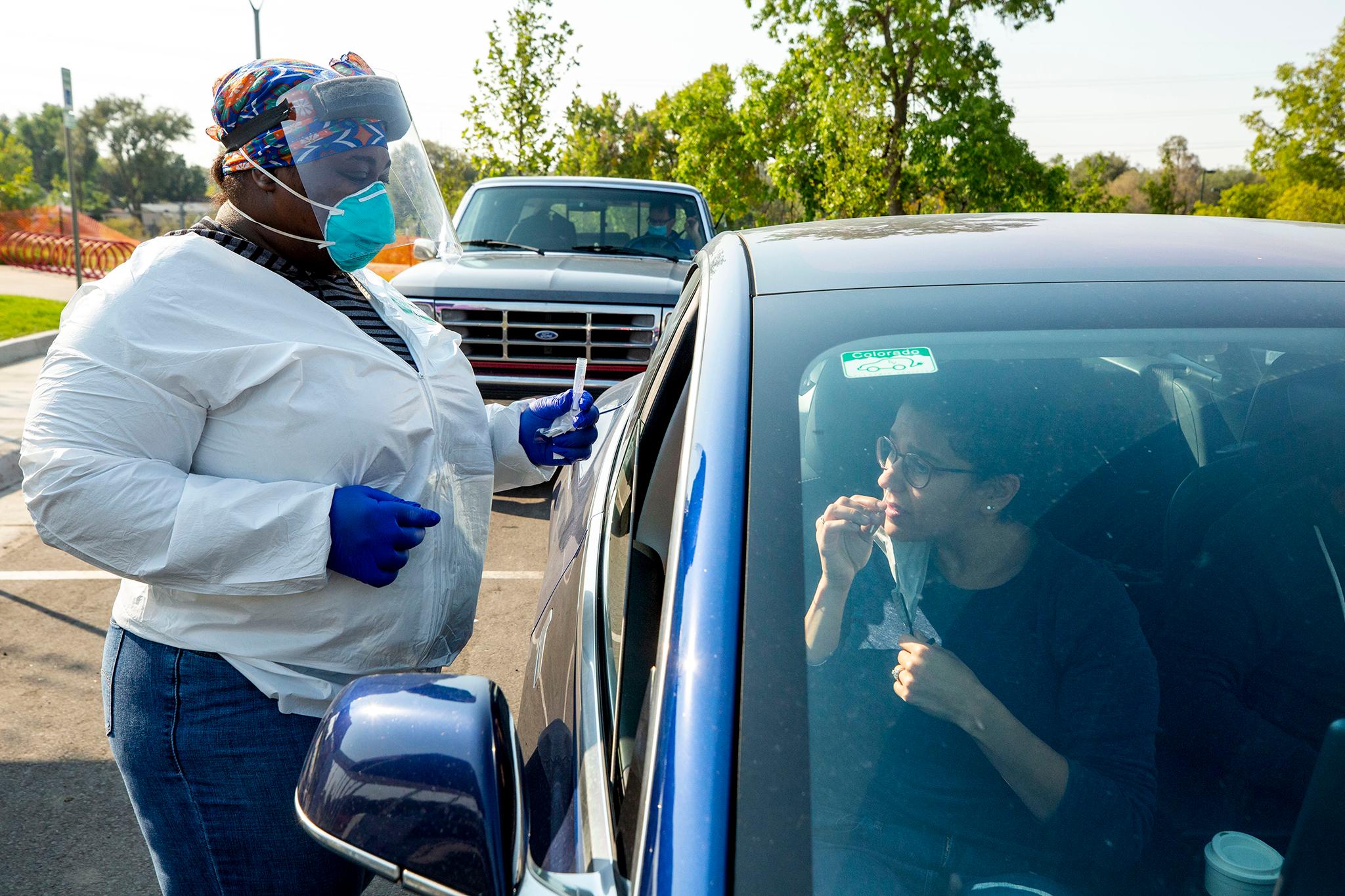The State of Colorado is requiring Denver to increase restrictions as coronavirus cases continue to rise in the city, Mayor Michael Hancock spokesperson Mike Strott confirmed Tuesday.
Hancock said the city was notified by the state's health department on Monday night that it would be required to move back a level on the state's metric. The city will be required to transition to the new phase by Wednesday at 5 p.m.
Calling for a more serious approach to addressing the pandemic, Hancock said most city residents are following rules about face coverings, and practicing physical distancing and making other sacrifices.
But he said as the state capital, Denver is visited daily by people outside the city.
"I don't believe this is Denver's failing," Hancock said. "It is, rather, a failing by those who still refuse to believe in science and those who do not take it seriously."
Denver currently sits at what the state calls a "Safer Level 2." But as case rates, positivity rates and hospitalizations continue to rise, the city will move to "Safer Level 3."
That means restaurants will only be able to serve at 25 percent capacity, or 50 or fewer people in outdoor settings; schools and colleges will be encouraged to turn to remote or hybrid learning and limit in-person learning; group sports will be limited to less than 10 people; and retail will only be allowed to have 25 percent capacity, according to the state's guidelines.
The new restrictions mean last call at bars will now be at 10 p.m., according to Denver Public Health Executive Director Bob McDonald. Strott said on Tuesday afternoon that the state would adjust its Safer Level 3 rules to allow gyms to stay open at up to 25 percent capacity in Denver. State-granted variances for arts and cultural institutions will remain in place.
McDonald said on Tuesday that Denver's two-week cumulative case rate is 385 cases per 100,000. McDonald said that number needs to come back down to 175 cases for the city to revert to the previous restriction level.
McDonald said a few weeks ago that there were outbreaks at colleges, both on and off campus, leading to a spike in cases. But that's changed, as McDonald said cases are now arising from other settings, including restaurants, parks and backyards.
During Tuesday's press conference, McDonald showed a photo of young people gathering in groups indoors without face coverings. He said young people need to make sure they follow health orders to make sure they don't transmit the virus to someone who may not handle it as well they can.
Younger students began returning to school starting in September with preschool students. Second through fifth graders returned to in-person learning last week, but then returned to remote learning Monday because of inclement weather. Middle and high schoolers were supposed to return last week as well, but their return was delayed until at least November 9 because of rising COVID-19 rates.
Denver Public Schools is expected to announce later today how it will operate as Denver adopts its new restrictions.
The move from Safer Level 2 to Safer Level 3 draws Denver closer to the last and most restrictive phase: stay-at-home, which the city was last under from March 24 to May 8. Under the previous stay-at-home orders, people were only allowed to leave their homes for things things like groceries and medical care and to visit certain nearby outdoor spaces.
Cases are rising across the state, approaching or surpassing records, prompting concerns over hospital capacity. The state recorded more than 2,100 new cases on Sunday alone; previously, the state had never recorded more than 1,267 new cases in a day, according to CPR News. While testing has increased, so has the positivity rate.
The new restrictions will not affect Denver's voting centers, Hancock said. People who vote in person will be required to wear a mask and practice social distancing.
Hancock likened the city's struggles to pushing a boulder up a hill. He noted that fatigue is a natural, honest response to the pandemic.
"This is not the time for us to stop," Hancock said. "We've got to put our hands back onto that boulder, we've got to put our shoulders into it. We've got to fight like hell to take care of our families, our community and each other and get that boulder over the hill."
After this story published, Strott clarified that the state is imposing the restrictions on Denver. CPR reporter Jenny Brundin contributed to this story. This story has been updated throughout.












